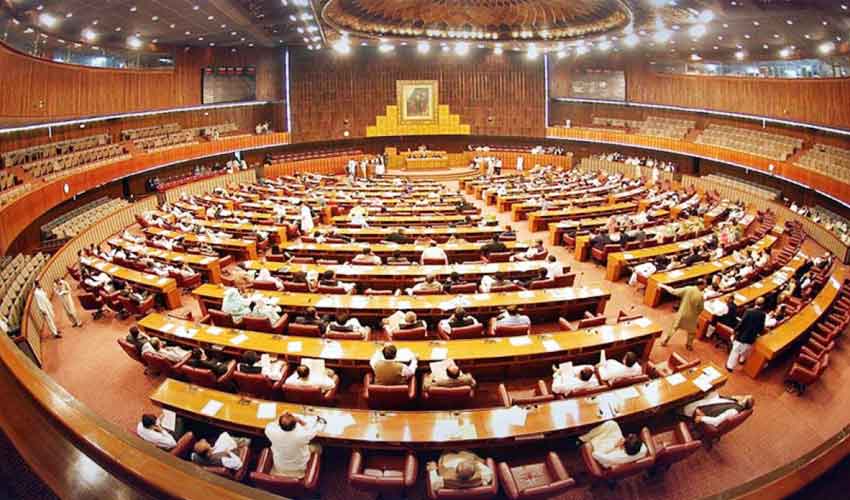Pakistan Constitution of 1973 has been amended 25 times so far. Now the ruling alliance is bringing 26th Constitutional amendments into the Parliament — National Assembly and Senate — in the name of judicial reforms.
The first Amendment was enacted on 4 May 1974 which redefined the boundaries of Pakistan and removed references to East Pakistan after the separation of Bangladesh.
The second amendment was enacted on 17 September 1974 defined who is considered a Muslim and declared the status of Quadianis as a minority and non-Muslim.
On Feb 18th, 1975, the third amendment extended the period of preventive detention while the fourth amendment was enactment on 21 November 1975, allocated additional seats for minorities, and removed the power of courts to grant bail to persons detained under preventive detention.
On 5 September 1976, the Fifth Amendment was enacted and expanded restrictions on the powers of the High Courts. The 6th amendment was enacted on 22 December 1976 that set retirement age limits for judges — Supreme Court judges retire at 65 while High Court judges retire at 62.
The 7th Amendment enactment on 16 May 1977, allowed the Prime Minister to seek a vote of confidence from the people.
The 8th amendment enactment on 11 November 1985, changed the government structure to a semi-presidential system and granted additional powers to the President.
The 9th Amendment proposal in 1985 aimed to impose Shariah law as the supreme law of Pakistan. It is to clarify the bill was passed.
On March 25, 1987, the tenth amendment was enacted to fix the maximum interval between National Assembly sessions at 130 days.
Interestingly, the 11th amendment proposal date proposed in 1989, sought to revise reserved seats for women in the National and provincial assemblies. This is to clarify that the amendment was withdrawn.
In 1991, twelve amendments established Speedy Trial Courts for three years while the 13th Amendment enactment in 1997, removed the President’s power to dissolve the National Assembly and dismiss the Prime Minister.
The 14th amendment enacted on 3 July 1997, allowed dismissal of members of parliament if they defected from their party.
The 15th Amendment in 1998 sought to impose Shariah law as the supreme law of the land. It is to clarify the Fifteenth Amendment was not passed.
In 1999, the 16th Amendment extended the duration of the quota system from 20 to 40 years.
The 17th Amendment enacted in 2003 amended provisions related to the office of the President and reversed some changes from the 13th Amendment.
The 18th amendment enacted on 8 April 2010 removed the President's unilateral power to dissolve Parliament granted more authority to provinces and renamed the North-West Frontier Province (NEFP) to Khyber Pakhtunkhwa.
The 19th Amendment that enacted on 22 December 2010, regulated the appointment of Supreme Court judges and changed the composition of the parliamentary committee responsible for appointing the Chief Electoral Officers.
The 20th amendment enacted on 14 February 2012 focused on ensuring free and fair elections while the 21st amendment on 7 January 2015, established military courts for speedy trials in the aftermath of the APS Peshawar attack.
The 22nd Amendment enacted on 8 June 2016, empowered the Chief Election Commissioner and redefined the structure of the Election Commission of Pakistan (ECP).
On January 7, 2017, the 23rd constitutional amendment re-established military courts for two more years until 6 January 2019.
The 24th amendment enacted on 22 December 2017 reallocated National Assembly seats based on the provisional results of the 2017 Census of Pakistan and allowed boundary updates for constituencies.
The 25th amendment, enacted on 31 May 2018 merged the Federally Administered Tribal Areas (FATA) with Khyber Pakhtunkhwa (KPK).
The 26th Amendment increased the National Assembly seats to 12 and of the provincial assembly to 24 of the erstwhile Federally Administered Tribal Areas enacted on 13 May 2019. The constitutional amendment was passed by NA in May 2019 but was not passed by the Senate.
It is pertinent to note that the current constitutional amendment would be called be amendment if passed from Parliament.



























